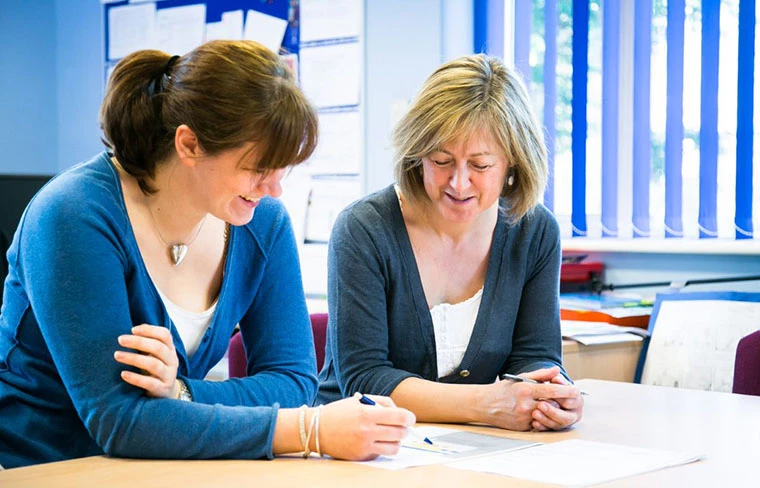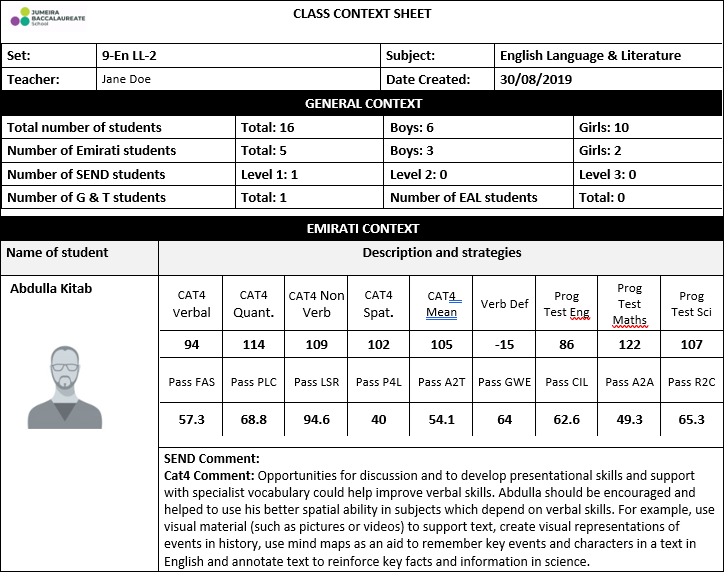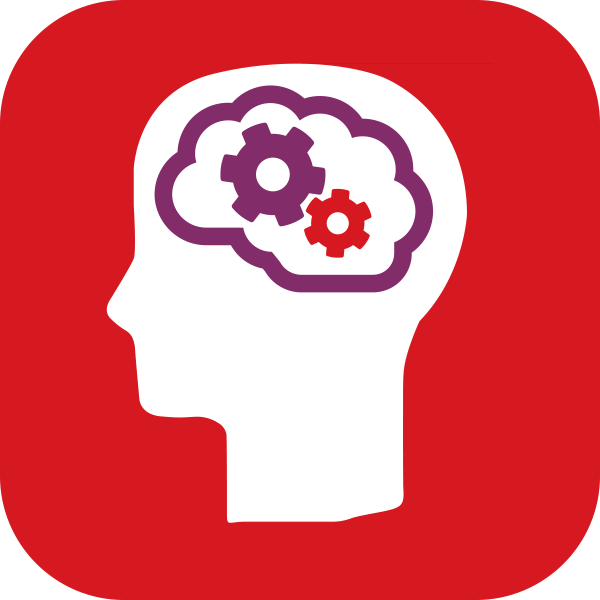“ ”
Investigating student wellbeing
Whilst the DSWC provided valuable information on the school as a whole, it did not provide the ability to drill down into information on an individual student level. To provide this level of analysis the school then decided to utilise GL Education’s Pupil Attitudes to Self and School (PASS) survey with the aim of assessing students’ attitudes towards learning, but also specifically to look into the areas that had been flagged by the DSWC.
Erika Elkady, Head of Secondary, tells us more: "With PASS, we were able to look at these issues on a granular student level. The DSWC looks at the whole school and provides a lot of useful information regarding demographics – but the results are school and grade wide. With PASS, we can flag specific students who might on the surface look like they are coping, but when you look deeper may have issues preventing them from reaching their full potential."
She goes on: "The PASS data confirmed what we were finding from the DSWC. We saw that across the school, the students’ perceived learning capability (PASS Factor 2) and their preparedness for learning (PASS Factor 4) were heightened, while self-regard (PASS Factor 3) and response to curriculum demands (PASS Factor 9) showed lower mean percentages.
We were concerned with the overall school results for PASS Factor 1: feelings about school and PASS Factor 5: attitudes to teachers. It came as a surprise that while we were thinking that relationships between teachers and students were positive, the students had a different opinion."
Putting in place school-wide changes
To address the results that they had seen for feelings about school, the JBS team put in place a series of interventions. These included increasing student participation through new vertical homerooms, introducing a house system to encourage school identity and amplifying the student voice through an active student council.
Erika continues: "We listened to our students regarding their environment and provided the older students with a common room. We have put in place things that took relatively little time and resources, but had the potential to have high impact."
They also addressed the attitudes to teachers. Erika explains more: "We put in place staff professional development and are now working with our teachers on Positive Education – positive emotions, engagement, relationships, meaning and achievement. We reviewed and changed our Mission, Vision and Core Values and adjusted our recruitment approach. We encourage the teachers to think that they are not teaching mathematics or English, but are teaching children – and if the relationships are not there, then the learning is also not taking place for every child."
The school also made changes within the curriculum to focus more on wellbeing. Erika explains: "We introduced guest speakers on topics such as digital wellbeing and extended our extra-curricular activities (ECA) program. We reviewed our assessment and homework policy and began moral education and character education lessons.
Students in Grades 6 to 9 now have character education classes as a distinct lesson. We want to focus on the moral virtues and also performance virtues such as perseverance, resilience and motivation.
We run a parent wellbeing group (for both primary and secondary parents) which meets every six weeks. If we look at the results of the DSWC, we can see that sleep is a problem, nutrition and exercise are a problem, spending too much time on social media can be a problem. We are trying to build partnerships with the parents, so that we can work together on these things."

“ ”

“ ”
The importance of conversations
The school now uses the DSWC each autumn, with PASS being delivered twice a year in Term 1 and Term 3. This allows the impact of any interventions to be monitored.
Erika outlines how the data is reviewed: ‘The Head of Inclusion/SEND Co-ordinator, the pastoral counsellor and I look at the PASS data together. We review whether there is a large difference between this survey and the last one for any individual students. This can raise red flags and guides us towards those students who may need more support or further investigation.
For example, using the PASS data we were able to spot a red flag on one child who had previously been performing well. The pastoral counsellor was able to speak to the student, one-to-one, and she revealed that there were problems at home as she was having to look after her younger sibling while her mother was at work. She was finding this very stressful and it was having an impact on her schoolwork, so we were able to speak to the parent and work together to resolve the situation.
The team look at all the students who are either flagged amber or red on the PASS report and agree on next steps. Quite often these might not be the students that we expect. For example, for some we might know that their home situations are difficult, but they are in the green, and for others which we hadn’t realised had any issues, were in the red. The most important thing is that it leads to starting conversations – with the student, with the parents and with the teachers. We are asking ourselves questions that we have never thought of before.'
Sharing information with staff
The PASS data sits at the heart of planning. Erika explains: "We have a class context sheet online – this summarises each student’s results from GL Education’s Cognitive Abilities Test (CAT4), Progress Test Series (PT Series), as well as the 9 PASS factors.
The teachers review these when they are planning lessons and differentiation. They can look at the results and say, for example, this student’s CAT4 scores are high, they should be a high achiever, but their PASS scores reveal that their feelings about the curriculum or their confidence in learning are low. Then the teacher can ask: are we challenging this student enough? Or too much? What can I do to address this? Curriculum Co-ordinators and Subject Leaders focus on this when we look at the teaching and learning – we find that CAT4 data, combined with the PASS data, is very valuable."

Class context sheet

Monitoring impact
The SLT will review and monitor the impact of all the interventions that have been put in place over the last 18 months on an ongoing basis. The latest PASS survey, carried out in summer 2019, shows that there has been a positive impact in some areas – for example feelings about school have improved between phases 3 and 4 and students now have more accurate and realistic perceptions of their ability. This will influence their understanding of the commitment they need to make to their learning. Attitudes to teachers have improved in Phase 4, but there has not been the same change in Phase 3.
Erika concludes: "This is still a work in progress, with many of our interventions taking time to embed. Like all schools in the Middle East, we have a high student turnover, so it will take some time for us to properly assess the success of everything that we have put in place. However, by having the data from PASS, we can evaluate whether we are going in the right direction and identify which changes are working and those which may not be. It is an ongoing project, and while we may not be there yet, the latest PASS data shows that we are on the right track."




